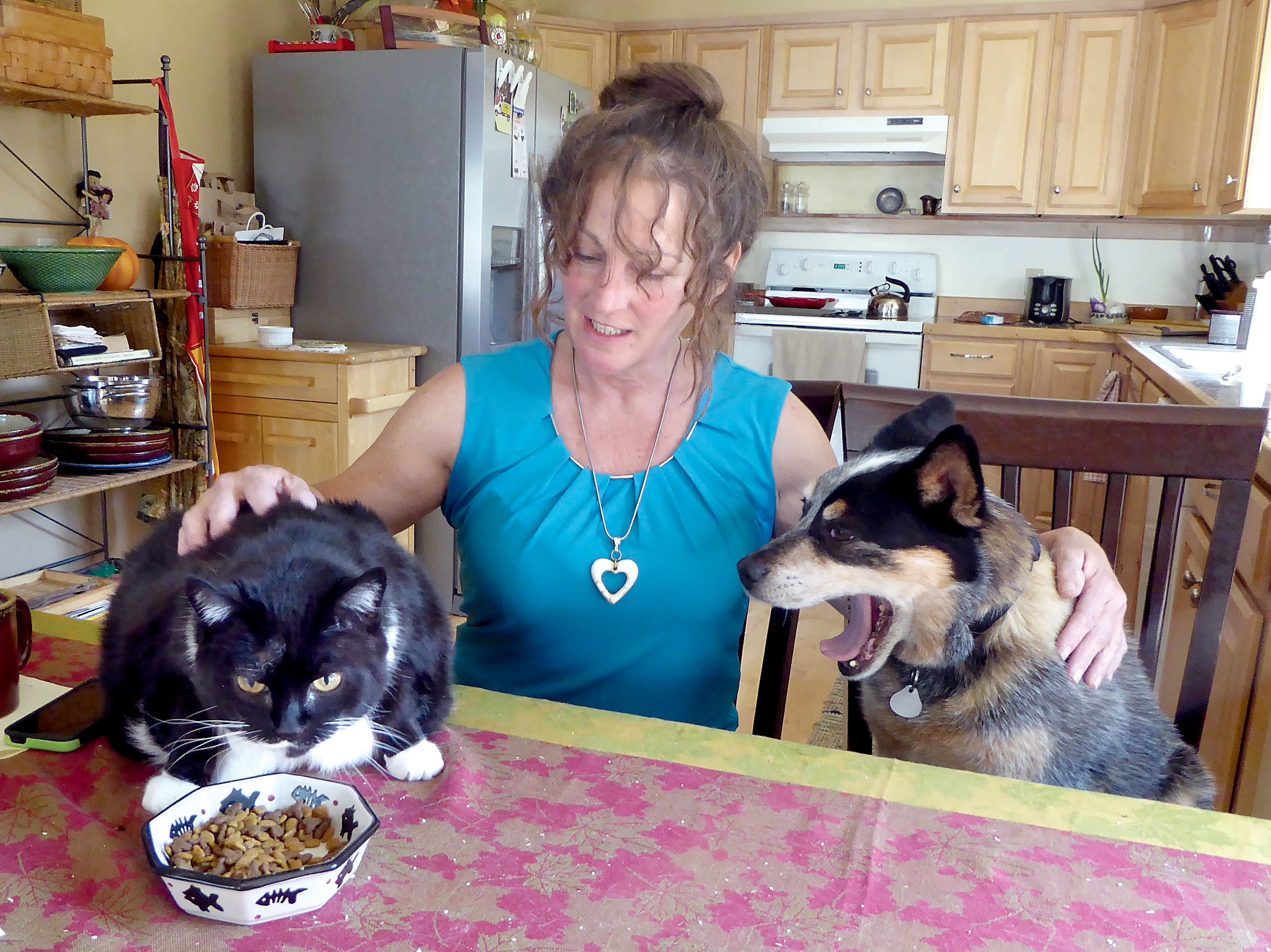IRONDALE — Dayna Neely was scheduled to attend a ceremony Thursday in Olympia recognizing her son and 136 other Washingtonians in 2014 who willed their organs to others at the time of their death.
The ceremony went on without her. She stayed in Irondale to care for three cats when a friend had to leave town suddenly to help a sick relative.
Skipping the ceremony, in which Gov. Jay Inslee was to present awards to family members, was an easy choice, she said.
“When you’ve lost a child, the idea of the governor, the president, the king or the queen doesn’t mean anything,” said Neely, 50.
“When I got the call to help from one of my oldest friends, I didn’t think twice about what I had to do.”
Neely said the thought of a child’s death is incomprehensible to parents but that unfortunate accidents happen.
And, she pointed out, one lost life can save another.
Her son, Robert Neely, died at the age of 25 on June 26 last year. He fell from a balcony at a friend’s house in Suquamish and never fully regained consciousness.
Since he was a registered organ donor, his liver and kidneys were donated, saving three lives.
Neely has been in touch with the liver recipient, a 40-year-old policeman “who was two hours away from dying” when the liver arrived, she said.
Neely has not talked with the kidney recipients and won’t make the first move.
“Receiving a transplanted organ is a long process,” she said.
“I know that it takes some people more than a year to sit down and write a letter [to thank the donors].”
Neely and her husband divorced when Robert, her only child, was 10.
Around that time, Robert noticed a heart on her driver’s license. When he was told it meant her organs could be donated when she died, he got emotional and the subject was never addressed again.
“He was my best friend, my son and business partner, and we had long, philosophical discussions about almost everything, but we never went back to that particular subject,” Neely said.
Mother and son were partners in a landscaping business, Dayna’s Gardens, which is now inactive.
She was surprised when she was approached by a Gift of Life representative at the hospital. She did not know that Robert had checked the donor box on his driver’s license.
“They are there exactly when you need them to be,” Neely said.
“They know when to speak, when not to speak and attend to your needs in ways that you would never expect. It’s like having your own personal little angel there.”
Her son’s death occurred just as he was recovering from a health problem that had plagued him for six years.
When he was 19, he began experiencing severe testicular pain that was initially treated with pain medication.
Eventually, he received a diagnosis of an embolism in a gonadal vein. That was repaired in surgery four months before he fell from the balcony.
“He was having a hard time and was pushing himself a little harder than he should have,” Neely said.
“He was very tall, and the balcony [railing] was short. He fell down two stories.”
While organ donation had never been discussed, the two had had long conversations about the quality of life in case of an accident.
But Neely always thought the roles would be reversed.
“I leaned over and told him that I was so sorry and that I would get him out of there as fast as I could,” Neely said.
“One of the nurses overheard me and said that I didn’t have to wait for another brain test, that I could make the call right then, so I did.”
Gift of Life staff showed compassion, Neely said.
“They said, in the most polite way, that we have a decision to make,” she said. “What they were really saying is there is no decision.”
Inslee honored organ donors with the Gift of Life Award, created by the state Legislature in 1998 and given posthumously to those whose organ donation saved the life of another.
The award is one of three statutory civilian decorations and awards issued by the state of Washington, the others being the Washington Medal of Merit and the Washington Medal of Valor.
The national Gift of Life organization tracks those who have checked the donation box on their driver’s license and meets family members at hospitals after fatal incidents.
Neely said she would have liked to attend Thursday’s gathering and present a letter to Inslee urging him to encourage voluntary organ donation.
When she decided not to attend, the letter fell through the cracks.
“I started writing the letter, but it never got finished,” she said.
“I wanted to ask him to make a statement in support of the donor program and encourage more young people to check the donor box.
“If more people signed up, it could help the people who have been in accidents and save them using the organs of those who have passed.”
Neely said organ donation is a natural act.
“It’s essentially recycling,” she said.
“When we’re through with these shells, our consciousness is no longer in them, our energy is no longer in them, so what on earth is the problem with recycling the materials?”
________
Jefferson County Editor Charlie Bermant can be reached at 360-385-2335 or at cbermant@peninsuladailynews.com.
